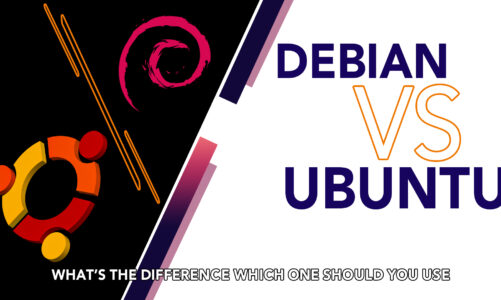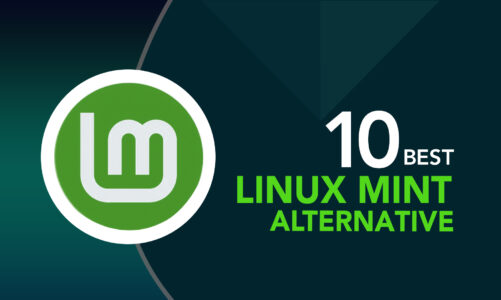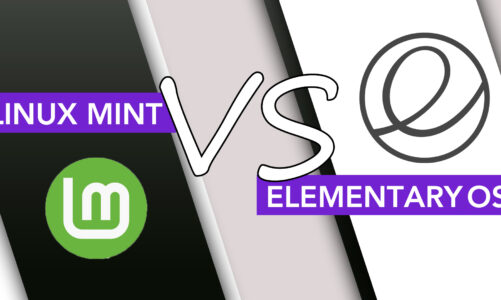Email has become a crucial aspect of our daily communication and organizational routines. However, with multiple email accounts to manage, staying on top of your inbox can become a cumbersome task. This is where email clients come in, offering a centralized and streamlined interface for managing your emails.
On Linux, you have a wealth of email client options available, each offering unique features and functionalities. In this guide, we will familiarize you with the top 10 best email clients for Linux that you can take advantage of.
10 Best Email Clients for Linux
With in-depth analysis and comparisons, this guide will equip you with the knowledge to choose an email client that best meets your requirements. So, get ready to simplify your email management and enhance your productivity.
1: Hiri
A popular desktop email client software explicitly intended for professionals and companies. It depicts a modern interface and is viewed as a strong alternative to MS Outlook.
Hiri supports email services such as Office365, Exchange, or a Microsoft email account (Outlook.com, Hotmail, Live). It is worth mentioning that there is also a paid version of Hiri that can be installed on various popular Linux systems using the SNAP command. But, users can experience its full version for seven days for free, allowing them to test out the software and its features before committing to a paid subscription.
2: Geary
Developed using Vala and built on WebKitGTK technology, it offers a fast and user-friendly way to manage email. Supporting IMAP protocol, as well as popular services such as Google Mail, Yahoo! Mail, and Dovecot Email server, Geary provides a complete email management solution. It is significant to note that Geary does not support classic POP3 mailboxes.
With Geary, you can enjoy a full-display message preview and have the ability to move to the next message with just one click. The email client also provides real-time notifications for new emails, ensuring you’re always up-to-date with your inbox.
The HTML mail composer makes it easy to compose and send professional-looking emails, while the integration with GNOME Keyring ensures the security of your sensitive information by securely storing passwords for your email accounts.
3: Thunderbird
This free and open-source email client offers users a range of powerful features that make it an excellent choice for those looking for an efficient and user-friendly way to manage their emails.
Thunderbird’s capability to handle multiple email accounts is one of its key advantages. The mail account setup wizard makes it easy to set up and integrate new accounts, and the sleek interface, complete with a quick filter search toolbar, makes managing your emails a breeze.
Thunderbird is also committed to the security of its users. It includes advanced security features such as phishing protection and spam mail filters, and you can configure automated security updates with ease.
4: Blue Mail
With Blue Mail, users can access their email from anywhere and on any device, thanks to the exclusive MagicSync feature. This feature allows for a seamless login experience, enabling users to stay connected to their email even when on the go.
In addition, Blue Mail provides users with powerful organizational tools, including the ability to dynamically sort and group emails by sender. The app also supports multiple email accounts from popular providers, making it possible for users to manage all of their email accounts from a single window.
5: Evolution
It is the default email solution for popular Linux distributions such as Fedora and Debian, and is well-suited for businesses of all sizes, offering compatibility with the Exchange Server and multiple other email setups.
Besides robust email capabilities, Evolution also provides a comprehensive personal information management experience, including features such as memos, task lists, and integration with LibreOffice.
With its feature-rich interface, advanced functionality, and a strong commitment to privacy, Evolution is a top choice for those seeking a versatile and effective email client on the Linux platform.
6: Kmail
KMail offers users a versatile and robust email solution by supporting various email protocols like IMAP, SMTP, and POP3. Its advanced search and filtering capabilities, effective junk mail filter, seamless integration with other KDE applications, and robust privacy and security features make it a top choice for Linux users.
Whether you are managing multiple email accounts, sorting through large inboxes, or simply looking for a more efficient email experience, KMail has you covered.
7: Mailspring
Mailspring is a versatile and feature-rich open-source email client that offers users a modern and intuitive interface. Previously known as Nylas Mail or Nylas N1, it has been designed to simplify email management and increase productivity. What sets Mailspring apart is the ability to locally save all emails on the computer, making them easily accessible through its advanced search function that supports both AND and OR operators, allowing users to search for emails based on multiple parameters.
Aside from its sophisticated search function, Mailspring also provides a range of additional features to enhance email management. These tools, such as a mail merge tool, a contact manager, a calendar, privacy and security options, and a scheduler, make it easier for users to manage their emails effectively and efficiently.
8: Sylpheed
Developed in the C programming language, Sylpheed is designed for keyboard-oriented use and offers a highly customizable user experience. Its sleek GTK+ interface and efficient performance, even on minimal hardware, make it a popular choice among Linux users.
Sylpheed places a strong emphasis on privacy and security, offering encrypted connections and password protection for users’ emails and personal information. The email client supports multiple protocols, including IMAP, SMTP, and POP3, making it a flexible solution for different email service providers.
9: Claws Mail
This email client is known for its exceptional performance, quick response time, and wide range of features, including email filtering, extensibility, and email stability, among others.
Not only does Claws Mail offer a robust set of features, but it also supports keyboard-oriented operations, much like Sylpheed. This makes KMail an optimal choice for those who desire a speedy and effective method of email management. With its editor support, Claws Mail provides users with the ability to easily create and edit their emails, making it an all-in-one solution for managing one’s email communications.
10: Mutt
An open-source, text-based email client for Linux that is designed for advanced users who prefer using the command line for email management. With support for popular email protocols such as POP3, IMAP, and SMTP, Mutt provides a secure and reliable way to send and receive emails. Mutt also offers full MIME support, including integration with PGP/GPG and S/MIME, ensuring the privacy and security of your emails.
The text-based user interface of Mutt is intuitive and can be easily controlled using keyboard commands, making it a fast and efficient way to manage your emails. Other features of Mutt include support for email conversation threads, the ability to search emails using regular expressions and a high level of customization through keybindings and macro support.
Conclusion
Linux users have an abundance of email providers to choose from, making finding the right one a daunting task. This post has distilled the top 10 best email clients, each with its own distinct features and suited to varying needs. Regardless of whether you value simplicity, security, or a comprehensive set of organizational tools, one of these top 10 email clients is sure to meet your requirements.




